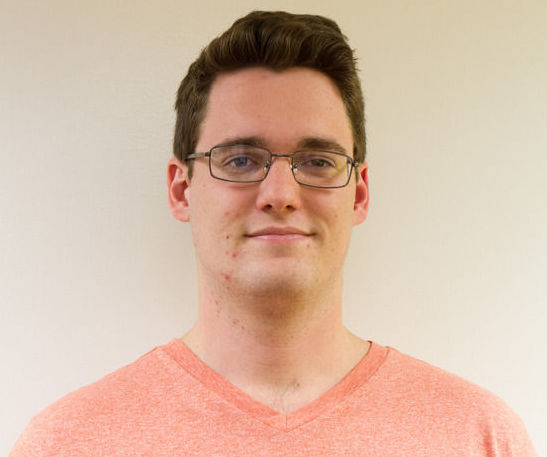The class of 2016 has its collective tunnel vision locked on a device that is somewhere between a doomsday clock and the countdown to a wedding. As I look at this countdown, I will swing from agony to elated anticipation. I am excited as I consider life beyond commencement: a new city, new experiences in a job I am passionate about, no more homework, and no more class. But I am almost in mourning as I think of parting ways with this campus and my friends. Thankfully, I am bringing so much with me as I go, and I know I can always return to visit. But what am I leaving behind?
I haven’t donated enough to earn a bench with my name on it. My initials are already lost in the graffiti of the pub booths. I’ve left the dorms I’ve lived in relatively unscathed. But maybe there’s a physical copy of the Dean’s list somewhere? You could find my name on it, if a little bit sporadically. The classes I took and the lessons I learned will always be useful memories. Sleep deprivation and balancing a job and clubs and school will hopefully make future challenges seem manageable. But outside of my own life, what has my time at Vanderbilt had an impact on? In answering this, I’ve come to the conclusion that what matters most in terms of what you leave behind, is the people who remain who will tell your story.
The inspiration for understanding my departure from Vanderbilt has come from two peculiar places: the soundtrack of the critically acclaimed, life-changing musical, “Hamilton” in conjunction with the way I have seen mentorship work in the context of my Christian faith. Those might seem incongruous first, if you think that focusing on who will “tell your story” sounds self-centered and prideful. It is. Or at least, it can be, if your story is just about you. But first, let me tell you how Hamilton’s lyrics have taught me how to say goodbye.
“Hamilton” deals with a life cut short and a story that history might easily forget, if not for the people he had an effect on. The final song laments, “Every other founding father’s story gets told. Every other founding father gets to grow old.” Hamilton was always searching for the way he would build his legacy. He thought revolutionary martyrdom would work, but was asked by George Washington to write, not fight. In the end, his passionate writing, his steadfast principles, and the effect he had on others, brings him his legacy. But if his actions had never impacted another real person, what would it matter in the long term?
As a Christian at Vanderbilt, my experience has been built on those that came before me. I can look back and think of specific upperclassman each year who took time to reach out and mentor me. No matter how much time has passed, I can still tell a small piece of their stories and why they were important to me. Each year I’ve been taught to look to the next class in turn, for giving them a community and a place to grow, and passing on the lessons I’ve learned. As for the selfishness that looking for a legacy could entail, this is where that can be prevented. In my life what I want to pass on is not my name, but my mission. This is one of the key differences in how my faith works itself out in discipleship. It is not about my self or my ego staying alive, but the message, and the story that has changed my life. My story only matters in how it fits into a much bigger one. And I think that can apply to any way you see purpose in your life or your system of beliefs.
Asking the question of who carries on your legacy at Vanderbilt can be pretty tough when all you are trying to do is stay alive during finals. But practically, it can mean doing something as small as getting a meal with an underclassman you’ve gotten close to, one last time. Or telling your successor in your organization what you appreciate about them and how you can’t wait to hear what they do as a leader when you’re gone. In any case, as the assignments wind down and summer approaches, raise a glass to freedom. But just remember: history has its eyes on you.

